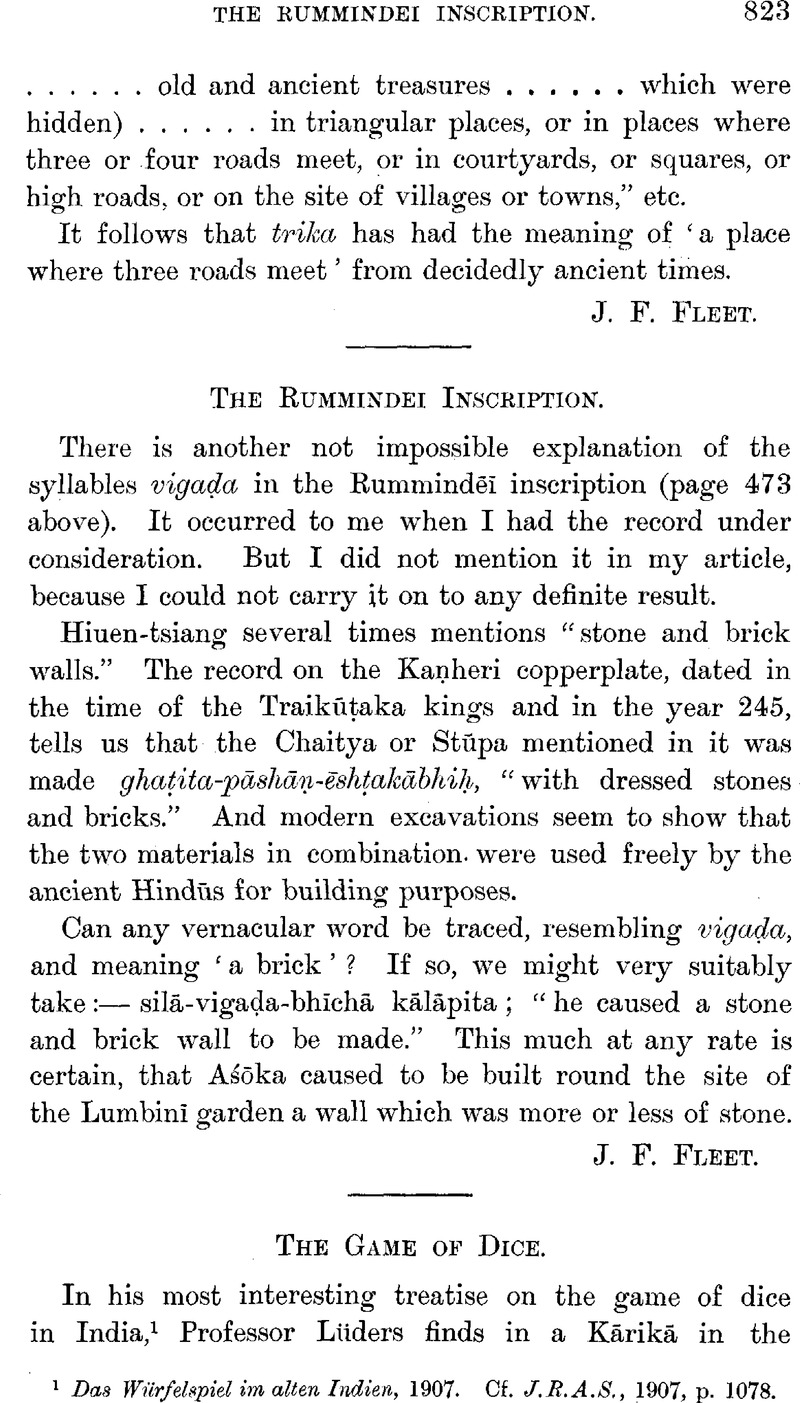No CrossRef data available.
Article contents
Abstract

- Type
- Miscellaneous Communications
- Information
- Copyright
- Copyright © The Royal Asiatic Society 1908
References
page 823 note 1 Das Würfelspiel im alten Indien, 1907.Google Scholar Cf. J.R.A.S., 1907, p. 1078.Google Scholar
page 824 note 1 And in the prose of the Jātaka, to which, of course, no importance attaches.
page 824 note 2 Lüders, , p. 21.Google Scholar
page 824 note 3 Ibid., p. 22, n. 1; Hopkins, , J.A.O.S., xxiv, p. 53.Google Scholar
page 824 note 4 Ibid., pp. 57, 58. Professor Lüders has, I think, misunderstood Dr. Grierson's note (J.R.A.S., 1904, p. 356) on this point, as Dr. Grierson does not give as his own the view that Ṛtuparṇa challenged Nala to a game of ‘odd or even.’ Further, Dr. Grierson's view that the Vibhīdaka was chosen by Ṛtuparṇa because of his skill in dice seems certainly correct, and agrees with Professor Lüders' own view that dice in the Epic game were of Vibhīdaka (p. 18).Google Scholar
page 824 note 5 Lüders, , p. 62.Google Scholar
page 824 note 6 J.R.A.S., 1908, p. 175, n. 2.Google Scholar
page 825 note 1 p. 64.
page 825 note 2 p. 43, n. 2.
page 825 note 3 9, ii (p. 48, 1. 10); cited by Lüders, , p. 51.Google Scholar
page 826 note 1 The only direct statement to this effect is that of Rudradatta (Lüders, , p. 52Google Scholar). I think, however, this view correct. Ṛ.V., i, 41, 9,Google Scholar must then mean ‘as one fears one about to throw (attempting to throw) fours until he actually throws ![]() nídhātoḥ),’ when, of course, fear is out of place. It cannot mean, as Lüders (p. 56) seems to take it, ‘one who holds fours,’ for the game is to throw a number sufficient to make up a multiple of four.
nídhātoḥ),’ when, of course, fear is out of place. It cannot mean, as Lüders (p. 56) seems to take it, ‘one who holds fours,’ for the game is to throw a number sufficient to make up a multiple of four.
page 1826 note 2 p. 53.
page 1826 note 3 He thinks the act is symbolical of the five diśaḥ. There is no doubt of the symbolism, but four diśaḥ would have suited it.
page 827 note 1 See reff. in Wackernagel, , Altindisches Grammatik, ii, 1, p. 30;Google ScholarSpeyer, , Vedische und Sanskrit-Syntax, p. 35.Google Scholar
page 827 note 2 Lüders finds them only in ritual use in the Brāhmaṇas and Sūtras, p. 21.


